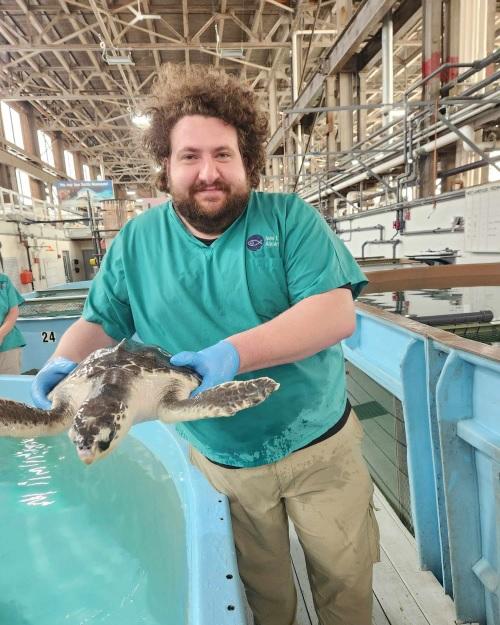-
About
- Leadership & Faculty
- News & Events
-
Academics
- Graduate
- Advanced Clinical Training
- Continuing Education
- Academic Offices
-
Student Life
-
Research
-
Hospitals & Clinics
- Emergency Care
- Hospital Services
-
Community Outreach
- Volunteer
Biography
Massachusetts
Biology
Boston University, 2023
Why did you choose to pursue this degree, and why did you choose Cummings School of Veterinary Medicine to pursue this degree?
For as long as I have been conscious, I have been enamored by the natural world. From the oceans, to the forests, to the tundras, and the deserts I find great joy in learning about and seeing the different animals and plants that make those environments their homes. Now that I’ve grown up (somewhat) and seen that those things that I love are in jeopardy, I want to do something to help, both for myself and for other people. I chose to pursue a degree in Conservation Medicine, because I want to eventually become a wildlife veterinarian, but before I do I want a solid base of knowledge and skills that will help me to make a real difference when I reach that point. There’s nothing else that I was able to find that was quite like it in terms of the collection of things being taught all in one program. I chose Cummings School partially because I knew that I would get a good education there, it has a good reputation and I like the professors I have met, but mostly because it’s the only place that offers a program like this. As far as I could tell, Cummings School is the only place that offers anything like the MCM, and so I had to go.
What are your interests and/or experience relative to conservation medicine?
I’ve spent a lot of time trying to figure out what I want to do with my life. I’ve been interested in animals and the biological sciences since I was a child. I spent hours watching those early 2000s Animal Planet nature documentaries. When I was younger, I volunteered at the Museum of Science and taught guests there about different animals that I was trained to handle. I worked for a while at a marine biology lab in Nahant where I learned a lot about Antarctic Icefish. The most relevant experience that I have to conservation medicine, though, and the thing that made me realize that I wanted to do all this was my time working for the New England Aquarium doing sea turtle rescue. I spent a few months as an intern there helping to care for and rehabilitate sea turtles that had washed up on shore around New England in the winter. A year later, I came back and worked in the clinic helping to care for the turtles again, just in a different capacity. It was really rewarding work, and I really want to do more stuff like that.
What are your career goals after completing the program?
My goal after completing the program is to go to veterinary school, get my D.V.M., and then to become a wildlife veterinarian doing some kind of conservation work. That may take the form of working at zoos and aquariums, working in the field with animals in the wild, or some combination of those two. Regardless of what exactly the work looks like, that is what I want to do.
